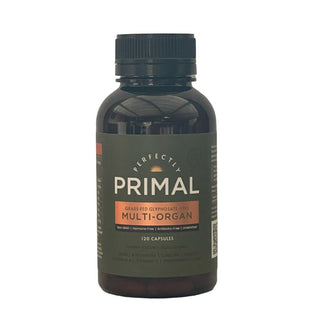Categories
Navigating the nutritional landscape during breastfeeding can be challenging. As a new mother, ensuring that you and your baby receive optimal nutrition is a top priority. One supplement that has gained popularity in recent years is beef organ supplements. But is it safe to take these supplements while breastfeeding? This blog will explore the benefits, safety considerations, and expert recommendations regarding beef organ supplements during breastfeeding.
What Are Beef Organ Supplements?
Beef organ supplements are from cows' dehydrated and ground organs, such as the liver, heart, brain, kidney, pancreas and spleen. These supplements are touted for their high nutrient density, providing a rich source of vitamins, minerals, and other essential nutrients.
Key Nutrients in Beef Organ Supplements
- **Vitamin A**: Essential for immune function, vision, and skin health.
- **Vitamin B12**: Crucial for nerve function and the production of red blood cells.
- **Iron**: Vital for oxygen transport in the blood and preventing anemia.
- **CoQ10**: Important for energy production and cardiovascular health.
- **Protein**: Supports tissue repair and growth.
Benefits of Beef Organ Supplements for Breastfeeding Mothers
1. Nutrient Density
Beef organ supplements are exceptionally nutrient-dense, providing a concentrated source of essential vitamins and minerals to support the mother and the breastfeeding baby.
2. Improved Energy Levels
The high levels of B vitamins, particularly B12, in beef organ supplements can help boost energy levels, which is crucial for new mothers who are often sleep-deprived and fatigued.
3. Enhanced Immune Support
Vitamin A and other immune-boosting nutrients in beef organ supplements can help strengthen the immune system, providing better protection against infections for both mother and baby.
4. Support for Anaemia Prevention
The rich iron content in beef organ supplements can help prevent anaemia, a common issue for postpartum women, ensuring that both mother and baby have adequate oxygen supply.
Safety Considerations
While beef organ supplements offer numerous benefits, it's essential to consider safety, especially during breastfeeding.
1. Quality and Source
Choose high-quality supplements from reputable brands that source their organs from grass-fed, pasture-raised animals. This ensures the supplements are free from harmful additives, hormones, and antibiotics.
2. Dosage and Moderation
Consult with a healthcare provider to determine the appropriate dosage. While beef organ supplements are beneficial, excessive intake of certain nutrients, such as vitamin A, can be harmful.
3. Potential Allergies
Although rare, some individuals may have allergies to specific organ meats. Monitor both mother and baby for any adverse reactions, such as digestive issues or skin reactions.
4. Interaction with Medications
If you are taking any medications, discuss with your healthcare provider to ensure that beef organ supplements do not interact adversely with your medications.
Expert Recommendations
Consult with Healthcare Providers
Always consult with your healthcare provider before adding any new supplement to your regimen, especially while breastfeeding. They can provide personalised advice based on your health status and nutritional needs.
Disclaimer: This article is purely for informational purposes only.
Monitor Your Baby's Response
Keep a close watch on your baby for any signs of adverse reactions, such as changes in feeding patterns, digestive issues, or skin rashes. If any of these occur, discontinue the supplement and consult your healthcare provider.
Balanced Diet
While supplements can help fill nutritional gaps, it's crucial to maintain a balanced diet rich in whole foods, including fruits, vegetables, whole grains, lean proteins, and healthy fats. This ensures that you and your baby receive a broad spectrum of nutrients.
Conclusion
Beef organ supplements can be a valuable addition to your breastfeeding diet, offering a rich source of essential nutrients supporting maternal and infant health. However, safety and quality are paramount. Always choose reputable brands, consult healthcare providers, and monitor your and your baby's responses. By taking these steps, you can safely incorporate beef organ supplements into your postpartum nutrition plan and enjoy their many benefits.
For more detailed information, consult reliable sources such as:
- [National Institutes of Health (NIH) Office of Dietary Supplements](https://ods.od.nih.gov/)
- [La Leche League International](https://www.llli.org/)
- [American Pregnancy Association](https://americanpregnancy.org/)
By staying informed and cautious, you can make the best nutritional choices for you and your baby during this crucial time.
Disclaimer: These are only potential benefits. This article is purely intended for informational purposes and not as advice. One must seek proper professional advice from their trusted health practitioner







